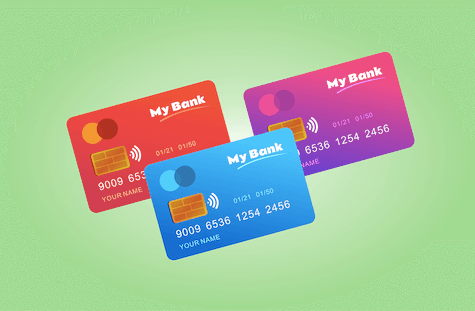The journey to homeownership is a significant financial undertaking that often involves careful consideration of one’s credit and debt situation. For individuals exploring the possibility of buying a home, questions about the impact of debt consolidation on this process may arise. In this article, Finger Finance will explore how debt consolidation can affect the ability to purchase a home and the key considerations for those seeking to balance debt management with homeownership goals.
What Is Debt Consolidation?
Debt consolidation is a financial strategy that involves combining multiple debts, such as credit card balances or personal loans, into a single, more manageable loan. This can be achieved through various methods, including taking out a debt consolidation loan, using a balance transfer credit card or leveraging a home equity loan.
What Is The Impact Of Debt Consolidation On Home Buying?
Improved Debt-to-Income Ratio:
- Positive Influence: Debt consolidation may positively impact your debt-to-income (DTI) ratio, a crucial factor considered by lenders when evaluating mortgage applications. A lower DTI ratio, achieved through consolidating high interest debts, can enhance your overall financial profile.
Credit Score Considerations:
- Short-Term Impact: The act of consolidating debt itself may have a short term impact on your credit score. For example, opening a new credit account or closing existing ones can lead to fluctuations.
- Long-Term Benefits: If managed responsibly, debt consolidation can contribute to long term improvements in credit score by reducing overall debt and facilitating more consistent, on-time payments.
Reduced Monthly Payments:
- Temporary Relief: Debt consolidation often results in a reduction of monthly payments, providing temporary relief from financial strain. This extra cash flow could be directed towards saving for a down payment on a home.
- Long-Term Commitment: It is crucial to view debt consolidation as part of a broader financial strategy. While it may alleviate immediate financial pressure, it is essential to maintain disciplined financial habits to sustain long term homeownership goals.
Type of Debt Consolidation Matters:
- Secured vs. Unsecured Debt: The type of debt being consolidated matters. Secured debt consolidation, such as using a home equity loan, involves leveraging assets like home equity. While it may offer lower interest rates, it also puts your property at risk if you fail to meet repayment obligations.
What Are Some Key Considerations For Prospective Homebuyers?
| Credit Score Monitoring: | Regularly check your credit score, especially during and after the debt consolidation process. Ensure that the consolidation strategy chosen aligns with maintaining or improving your creditworthiness. |
| Long-Term Financial Planning: | Consider debt consolidation as part of a comprehensive, long term financial plan. Assess your ability to sustain responsible financial habits, save for a down payment and manage mortgage payments while meeting other financial obligations. |
| Lender Requirements: | Understand the specific requirements of mortgage lenders. While debt consolidation can positively impact your financial situation, different lenders may have varying criteria for evaluating creditworthiness. |
| Home Affordability: | Assess your overall financial situation carefully to determine the price of a home you can afford. Consider not only the purchase price but also associated costs such as property taxes, insurance and maintenance. |
| Speak with a Mortgage Professional: | Consult with a mortgage professional to discuss your specific situation. They can provide insights into how debt consolidation may impact your mortgage eligibility and help you navigate the path to homeownership. |
The Bottom Line
Debt consolidation can play a role in improving your financial standing and, in turn, your ability to qualify for a mortgage when buying a home. However, it is essential to approach this strategy with a clear understanding of its potential short term impacts on credit and the long term commitment required for successful homeownership.
By carefully assessing your financial goals, monitoring your credit and working with professionals, you can strike a balance between managing debt effectively and achieving your dream of owning a home. Remember that responsible financial habits and a well thought out plan are crucial elements in achieving lasting success on your homeownership journey.



